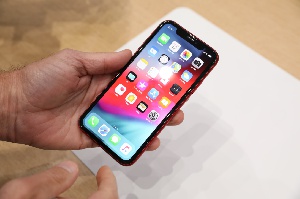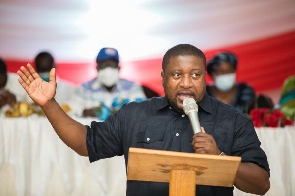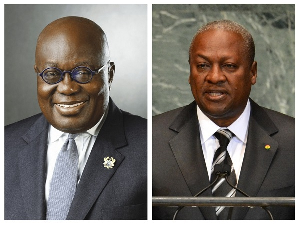 Stakeholders at the Policy Summit
Stakeholders at the Policy Summit
The sixth National Policy Summit with focus on fisheries and sanitation sectors is underway in the ancient Capital, Cape Coast in the Central Region.
The two-day event, which started on Sunday, is held quarterly to provide a platform to explain government’s policies, plans and activities to the citizenry as well as collect feedback for policy formulation and implementation.
Organised under the auspices of the Ministry of Information, it is being held on the theme: "Meeting the Sustainable Development Goals (SDGs): Emphasis on Fisheries and Sanitation”.
Scheduled to speak at the event are Chief Executives of state institutions, Corporations, heads of selected institutions, traditional leaders, Zoomlion, State Housing Corporation, Ghana Free Zones Board, Ministry of Education and Food and Drugs Authority (FDA).
Addressing the opening of the summit, Mr Kwamena Duncan, the Central Regional Minister, applauded the government for bringing the summit to the Region regarded as the ‘heartbeat’ of fishing in Ghana, but with growing fisheries and sanitation challenges.
He indicated that the maiden Policy Fair was key to creating sustained awareness, transparency and participation of all to form critical decision-making policy formulation and implementation.
It served as an opportune platform to give voice to the citizenry, private sector and state-owned institutions to share their ideas, views and offer contributions towards accelerating national development.
Justifying the theme for the event, Mr Duncan, said the SDGs, which aimed at ending poverty and hunger by 2030, also recognised the connection between people and the planet, and had set goals relating to “a life on land, life below oceans and other water bodies”.
“And as per the theme for the first National Policy Summit for 2019, the issues relating to fisheries were consistent with SDG 14, which recommends that we conserve and sustainably use the oceans, seas and marine resources for sustainable development."
Reiterating the benefits of the fishing industry, he said the sector played a vital role in the national economy, contributing significantly to job creation, employment and poverty alleviation.
According to him, with Ghana's abundant coastline of about 539 kilometres, the Region had the second largest coastline of about 138 kilometres.
The Regional Minister expressed resentment about the continued illegal practices in the sea through Illegal, Unreported and Unregulated (IUU) activities that were fast depleting marine resources.
The use of light and chemical fishing exposes the fishes to dangerous chemicals, since it involved the use of lights to attract the fishes in the sea and blasting them with carbide and dynamite to disturb their habitation to attract them into their nets.
Touching on post-harvest fish losses, he explained that the practice was a major concern and occurred in most fish distribution chains that must be tackled holistically.

Not only do losses constitute lost income to fishers, processors and traders, they also contributed to food insecurity. A loss in fish means less fish available for the consumer.
Mr Duncan reassured of Government's continued support towards protecting, sustaining and contributing to the re-building of the fish stock because the sea was an important resource to the economy of the country.
Nana Kobena Nketia IV, Omanhene of the Essikado Traditional Area, advocated strict enforcement of the bye laws on sanitation to reduce the occurrence of diseases such as malaria and cholera.
He reiterated the need for a total commitment of everyone, to avoid the avoidable deaths through sanitation related diseases and urged all to continue to support, empower and educate the youth on environmental issues.
He urged government to work to tackle the underlying causes, and incentives to address the issue of dumping of tons of plastic waste in the ocean.
Again, also called on traditional leaders to leverage on their indispensable roles in society to take lead in the fight to mitigate the effects of the climate change phenomenon, to speed-up national development.
Osabarima Kwesi Atta II, Omanhen of Oguaa Traditional Area, who was the Chairman for the occasion, called for concerted efforts from all stakeholders to end the soiling environmental challenges.
He described as ‘completely unacceptable the situation where indiscriminate littering, defecation and urination have become a norm in Ghana. He said the poor sanitation attitude needed to radically change since it impacted on so many segments of the economy and cost the nation money, time and pain.
Osabarema was hopeful that with the needed logistics and support of all, the country would achieve its vision on environmental cleanliness to achieve the SDG on environment.
- Driver, spokespersons: The 3 close aides of Akufo-Addo aiming to enter Parliament
- Crash of newly-imported train: 4 more people remanded
- You still have the nerves to speak like this – Randy Abbey slams Danquah Institute
- Crash of newly-imported train: Owner of Hyundai truck speaks
- Watch video of crash between newly-imported train and parked Hyundai truck
- Read all related articles










